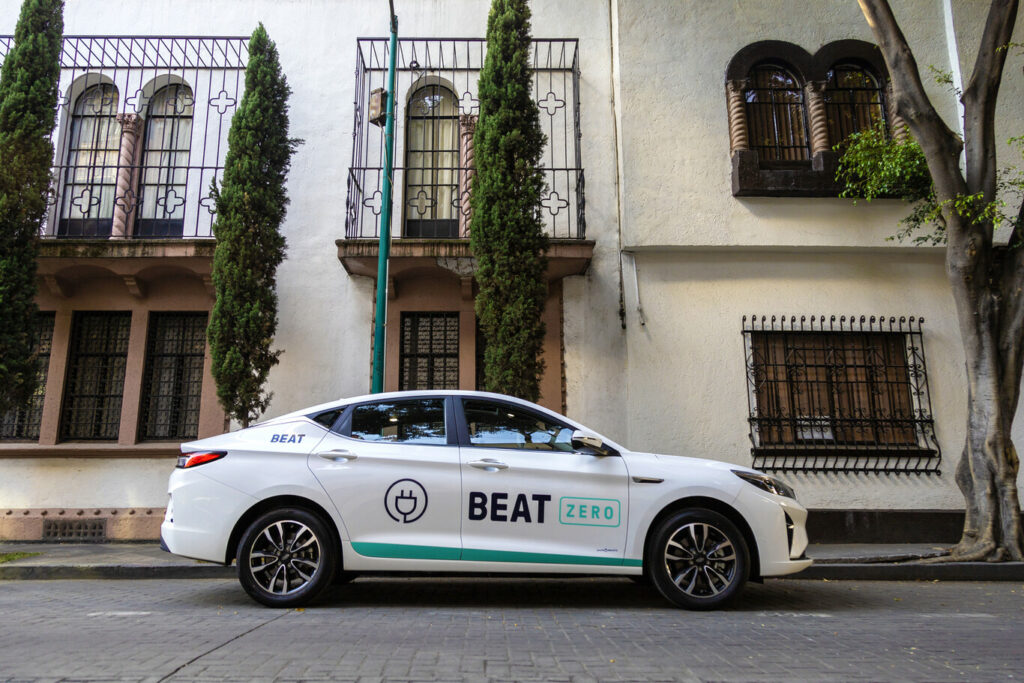
Beat Launches New Electric Mobility Solution for Mexico City

Latin America is one of the most potential regions to boost electric mobility due to its large Lithium reserves, among other important components for manufacturing electrified cars. According to the United Nations (UN), the continent has the capacity to generate 22 times the energy needs of the global economy.
Mexico is one of the countries leading the sales of cars with these new technologies, with a large number of multinational companies betting on the inclusion of more fleets into the country.
One of these companies is Beat, focused on mobility solutions development, which launched the “Beat Zero” service at the beginning of 2022. The initiative will have more affordable fares than Teslas, and more similar to traditional cab prices.
The difference in this case is that Beat owns the entire EV fleet and drivers are on the company’s payroll. An estimated 700 people are involved in the operation,
including drivers and administrative staff.
According to data from the Greek-based organization, those using this service can save up to 19,600g of carbon for every 100 kilometers they travel.
Chinese Car with Great Technology
The JAC E J7 will be the car to be used by Beat for this new launch. It is powered by an electric motor with 243 lb-ft of torque and a 55 kW/h Lithium-ion battery with a range of up to 492 km.
In addition, all Beat Zero vehicles have a 24/7 monitoring system, security cameras and phone charger for the comfort and peace of mind of both drivers and users.
It consists of a body type with a trunk lid including the rear glass, whose dimensions are similar to those of a Passat. It is spacious in the second row of seats, with good trunk space and a tablet-sized screen placed vertically right in the middle of the dashboard. The electric version has the same design, but instead of a gasoline engine it has an electric one.
Beat stated that the Jac EJ7 fleet is equivalent to 15% of all electric models sold last year in Mexico. It is worth noting that the North American nation was the first Latin American market in which the company launched an electric mobility service, as part of its commitment to grow in the main metropolises of the region.





